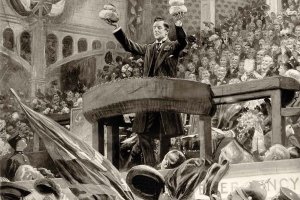The Morals of Munitions Workers
The commemoration of the centenary of the First World War has focused attention on the role of women, particularly in the making of munitions and support for the war effort.
The war itself similarly placed a spotlight on women. The popular press, women’s organisations, and social observers turned their attention to working-class women. Their role in industry, working conditions and pay, and especially their behaviour and morality, became subjects of heated debate.
Women in industry was not a new Birmingham phenomenon. Carl Chinn argues that the number of women at work in the Birmingham area was regarded as abnormally high, totalling some 118,000 in the 1901 census. Large firms increased their workforce dramatically – Birmingham Small Arms’ (BSA) employees grew from 3,500 to 13,000, and Austin in Longbridge went from 2,800 in 1914 to 20,000 by 1918. By March 1918 Kynoch at Witton had 8,964 women in their employment, 1,298 of whom were undertaking tasks previously regarded as men’s work. In addition, around 15,000 women came to work in the city, causing a crisis in rented accommodation.
KEYWORDS: Women, World War I, Munitions, Work, Industry, Birmingham
Download the Full Article (PDF)Categories:
Books from History West Midlands

Fortunes of War:
The West Midlands at the Time of Waterloo
In Andrew Watts, Emma Tyler, Andrew Watts, Emma Tyler, Waterloo, Military,
Buy Now £3.00
More from History West Midlands

Canalboat People: Lives on the Waterways of Birmingham
In Birmingham, Warwickshire, Canals, Women,

Mom's Army
WOMEN AT RUBERY OWEN, ENGINEERS 1945-1951
In Women, World War 1,

